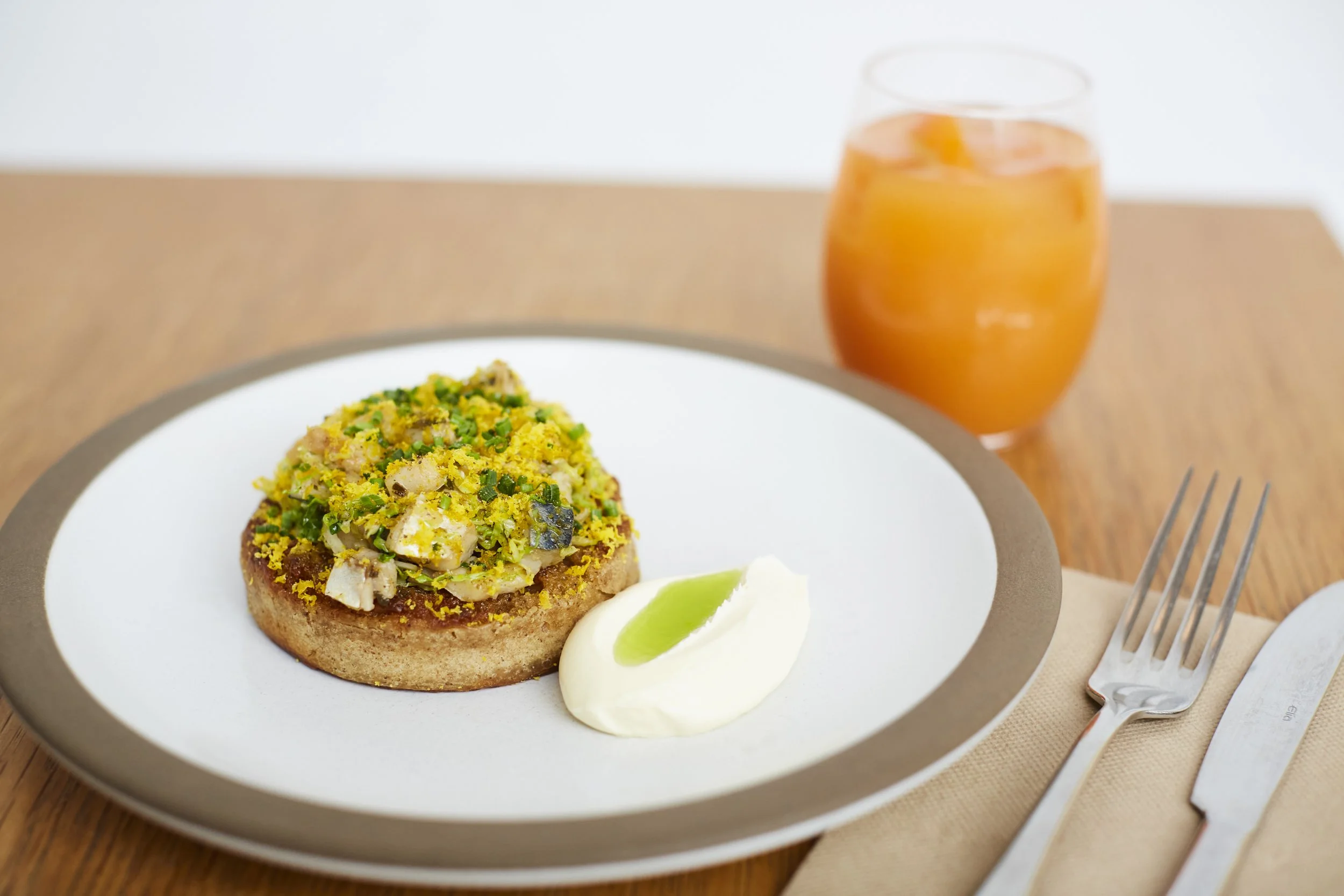Interview with Sam Scott, Head Chef of Ozone Coffee Roasters
Sam Scott in action at Ozone.
Ozone Coffee Roasters in Shoreditch is known for great coffee and a forward-thinking approach to food. Head Chef Sam Scott leads the kitchen with a strong focus on sustainability & reducing waste. His creative menus turn by-products into delicious dishes, helping the restaurant keep kitchen waste under 3%. Sam shared how he brings this vision to life and the challenges of running a circular kitchen…
Could you give us some background on yourself and how you came to be the Head Chef at Ozone? What attracted you to Ozone?
Growing up in New Plymouth, New Zealand, (where Ozone was first started back in 1998), Ozone was always a part of my life. My dad used to go every day for his morning coffee (still does!), and I’ve known Craig Macfarlane, Ozone’s Managing Director, since I was young. When I moved to London, it felt like coming home to Ozone’s Leonard Street kitchen.
I was working under Joe O’Connell, our then Head Chef, who now heads up our New Zealand eateries in Auckland and New Plymouth. He was really inspiring to work with, striving for sustainability in the kitchens and always encouraging my progression. We still work closely now to maintain consistency and shared values in our kitchens across the UK and NZ.
Taking on the Head Chef role has allowed me to continue Joe’s legacy at Ozone and make sure we’re still striving for betterment through our waste mitigation practices.
Spent sourdough crumpet with Cornish mackerel Haeckels' seaweed butter and cured yolks.
We enjoyed reading through ‘Our Kitchen Philosophy’. What does sustainability mean to you, and why is it important?
Sustainability to me is a necessity for a better planet. It’s not just a singular approach or goal; it’s embedded in everything we do and a reflection of our values around always improving. To me, sustainability means doing all the things we can to serve delicious, thoughtful food and coffee that supports our people and planet. It’s not just about reducing waste, but also how we source, what we do with those ingredients and how we educate our community and team about the bigger goals and impetus around this.
What trends have you picked up on across London’s hospitality sector recently?
Most of the unique, waste-saving techniques you find at Ozone are things we’ve always done. They’re core to our kitchen philosophy, so we don’t consider them trends. We always source great local ingredients from top suppliers to reduce our footprint, use by-products from core dishes to inform new ones and smoke, ferment or pickle wherever possible.
We’re always aware of what's happening in the London food and hospitality scene, but mindful not to follow trends too closely. We might serve classic brunch dishes, but we do so in our own unique way—it’s about challenging ourselves to create dishes that ultimately reduce waste and our overall footprint. It’s great to see more restaurants offering more sustainable, locally sourced menus, and I certainly hope that’s more than a trend and sticks around.
Hangi root veggies over fermented yellow peas, greens and kombu sauce.
What kind of hospitality businesses do you feel are missing from London?
If you’re a younger or new, less-established chef or restaurant, it can be really challenging to enter the London hospitality scene at all. It’s a shame because there’s so much emerging, young talent who have so much creativity to offer. London is missing an opportunity to make it more accessible for new chefs to enter and have a chance to showcase their menus and talents.
Is it tricky to balance sustainability with great-tasting food? Any tips?
We form relationships with the best local suppliers who are working hard to source the best ingredients, which makes it much easier for us to work sustainably. One example of a challenge with this is that we’re mindful about sourcing second selection vegetables—the kind that maybe aren’t so perfect looking and might otherwise get picked over or tossed. We’re happy to use these to make sure they don’t end up in a landfill, but it can be challenging to always find consistency with second selection products.
It’s important that we know where our ingredients come from, and we plan our dishes around what’s available. For example, I knew I wanted to use sea kelp on our new menu, but could only source it from somewhere in Scotland that made it expensive to get here and added unnecessary travel. We reached out to our mates at Haeckels, whom we already work with to supply our used coffee grounds for their products, and asked if they could source us seaweed direct from the beaches in Margate. Now we get seaweed directly from the Kent seashore and use it to make things like seaweed butter and XO sauce!
When adding new dishes to the menu how do you access feedback from diners? How to know when you’ve got it right?
We’re always listening to our community to inform what we do next, tweaking the menu based on both feedback we’re seeing and what local, seasonal produce or meats are available to us. We serve classic brunch favourites that we put our own stamp on with simple and creative waste-saving techniques. I’m always thinking about new ideas or ingredients I want to try, so there’s always an opportunity to tweak our menu as the seasons change.
No-waste single origin coffee chaff & honey ice cream with chocolate dipped oat wafers.
Which non-food-related aspects of dining have you looked into to improve or differentiate the eating experience at Ozone?
At our Emma Street eatery, we extended our seating area to include outdoor tables following the pandemic outdoor dining rules. It worked so well that we made it a permanent feature. From the start, Ozone was designed with the customer experience in mind, with a simple aesthetic and sustainable design features like our Snøhetta stools that are made from recycled fishing nets. We’re fortunate we haven’t had to make too many changes over the years to keep our community happy, but we’re always open to change and adapting to our customers’ needs.
Smoked Dorset oyster mushroom omelette and Haeckels' seaweed XO Sauce.
How does Ozone standardise and organise its recipes and processes? How is consistency maintained across NZ eateries with different local produce?
We keep a standard, physical recipe book to track everything in our kitchens, from our dishes and the ingredients, methods and by-products of those, quantities and lifespans of ingredients and more.
I’m always speaking to Joe, Ozone's Head Chef in New Zealand, about new menu ideas and inspiration. We share the same philosophy and approach, so we want to maintain a level of consistency. The way we go about designing menus and coming up with new dishes is always the same, but because we’re in very different hemispheres and regions, the produce that’s available to us is quite varied.
Our recipe books are never the same at any one time, but we’re always collaborating team and sharing ideas about what we’re doing.
All photography from Ozone Coffee. Learn more here.





